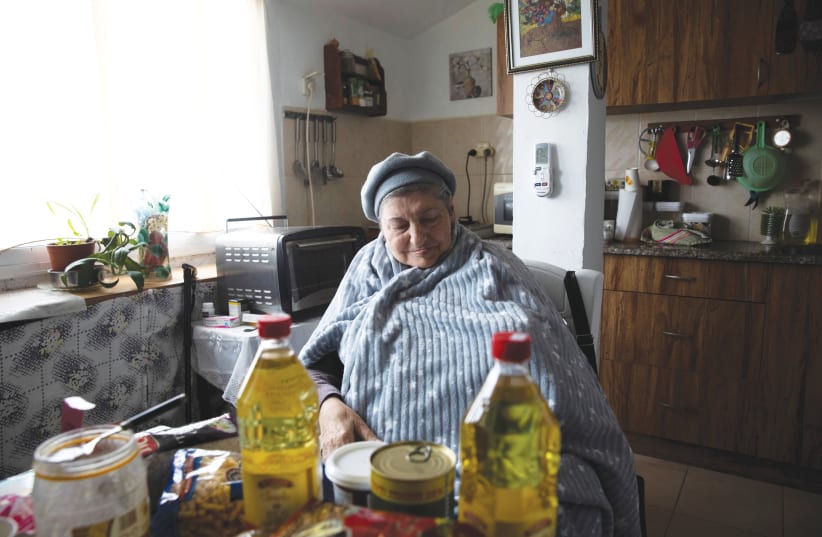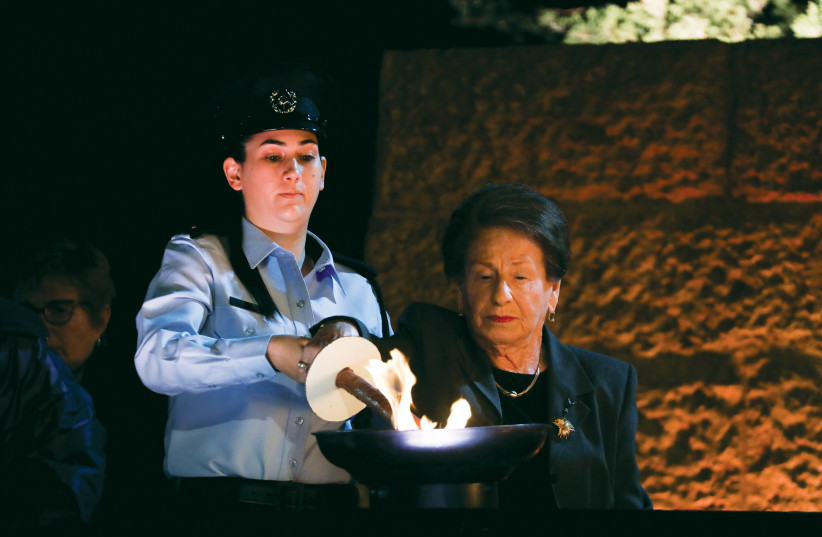A survey published Thursday by the Foundation for the Welfare of Holocaust Victims presented data regarding the loneliness and welfare of Holocaust survivors in Israel.
More than half of the respondents to the survey testified that they are unable to leave the house, primarily due to their need for escorts to do so. Over a quarter of the respondents testified that they struggled to obtain food products due to financial difficulties or mobility difficulties. 36% said they need a great deal of assistance to purchase food for their home.
39% of Holocaust survivors stated that they needed help with eye exams and fitting glasses at home, and about 33% needed help with dental treatments. A quarter of the Holocaust survivors had to give up on medical tests or treatments, and a fifth of the respondents testified that they had to give up on medical aids or means of accessibility.
7.6% indicated that they had to give up on medication (it is important to note that Holocaust survivors are entitled to an exemption from prescription medication in the health basket if they meet one of the conditions set by the state). 12% of Holocaust survivors do not have access to all the rooms in their homes.
Poverty and loneliness are prolific among Holocaust survivors
The survey shows that 35.8% of Holocaust survivors live completely alone. About half of the Holocaust survivors want to leave the house more and are unable to; the main reason for this is that they need to be accompanied by another person. 41% said they feel lonely to some extent or to a great extent.
A fifth of Holocaust survivors are confined to their homes and do not go out at all, and among people who need the help of another person, the figure rises to 25%. 69% of respondents use another person to get out of the house.
61% of the Holocaust survivors stated that they experienced a decrease in their quality of life following the war; one of the main reasons for this is psychological (about 50% of all those surveyed). Close to a fifth of Holocaust survivors (18%) do not have protection from rockets; the main reason for this is that there is no protected space in their surroundings and, secondly, because of issues with accessibility.
Half of the Holocaust survivors testified to having difficulty covering the monthly expenses of the household. 30.8% of respondents had to give up cleaning and personal hygiene products, 23.3% had to give up electrical goods, and about 16% needed financial assistance in purchasing a plot or a tombstone.
Health Minister Uriel Busso visited the WIZO's Parent's Home in Tel Aviv on Thursday, during which the minister spoke with two tenants who are Holocaust survivors - Miriam Reisman, 97, who fled from Poland to the forests and immigrated to Israel at the age of 12, and Zvi Leibovitz, 103, who survived the Auschwitz and Buchenwald camps and immigrated to Israel at the age of 24.
Busso said, "We are committed to ensuring their safety and taking care of their health and quality of life so they can live long and with dignity."
Avichay Chaim contributed to this article.

